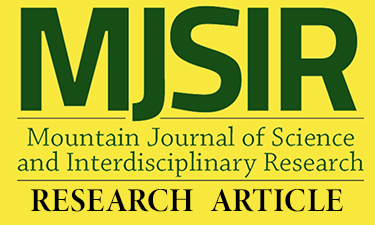Traditional Food Crops and their Role in the Nutrition Well-Being of a Semi-subsistent Community in Kibungan, Benguet, Philippines
Main Article Content
Abstract
Traditional food crops have helped the people of a community in Kibungan, Benguet survive since time immemorial. This study documented the existing traditional food crops, postharvest practices and cooking methods, estimated the nutrient value of these crops, and assessed the contribution of these to the nutritional well-being of the community. Participatory Rural Appraisal (PRA), key informant interviews, focus group discussion, participant observation, semi-structured interviews, anthropometric assessment, and 24-hour food recall were employed to gather data. Findings revealed 33 species of traditional food crops that are available to community members. Postharvest and cooking practices adopted were simple or traditional. Results showed that traditional food crops contribute to food security especially that they are readily available as sources of food at different times, cheaper than commercially grown food crops, and add taste and flavor or satiety to their diet. The study also showed that these crops are significant sources of micro and macronutrients, which improves the nutritional status of the people. With the introduction of commercial crops, increasing pests and diseases at present, and the continuing threat of climate change, traditional food crops needs to be propagated and its production improved. The development of postharvest technologies to sustain production and engaging in agricultural entrepreneur is also required to effectively contribute to people’s resilience and nutritional well-being.

